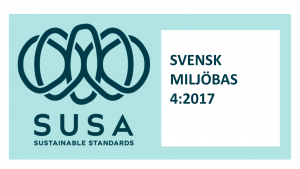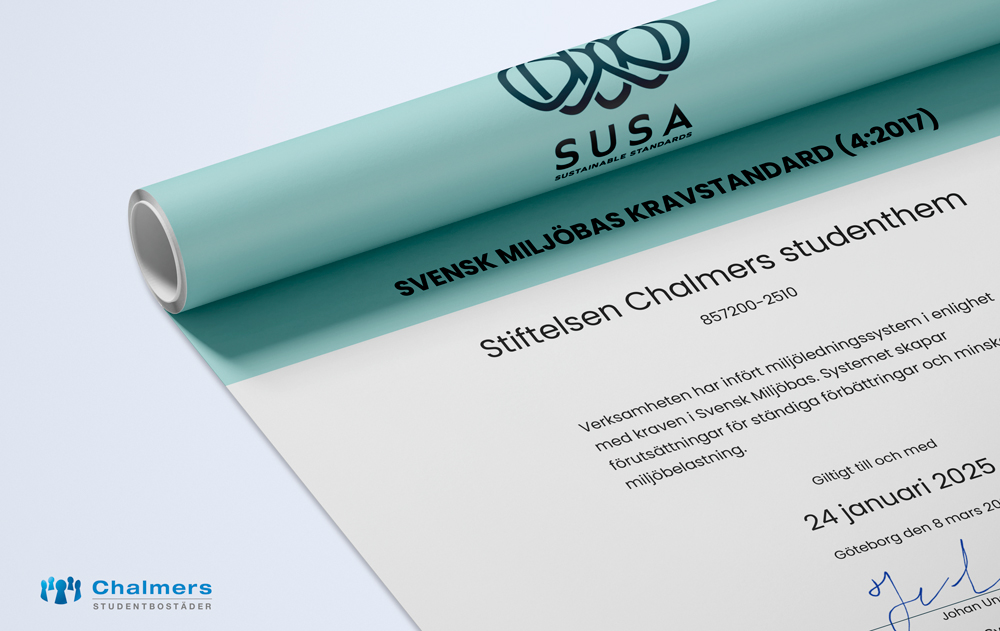Sustainability – Global goals
The foundation relates to the UN Global Compact, the Global goals of Agenda 2030 and follows the Ten Principles. Our goal in our expansion and volume increase is to follow the Roadmap for fossil-free competitiveness in the Construction and civil engineering sector.
On September 25, 2015, the UN member states adopted Agenda 2030, a universal agenda for sustainable development that contains seventeen global goals to be achieved by the year 2030. The global goals, in turn, have 169 sub-goals and roughly 230 global indicators for how the work should be implemented and monitored up.
The Global Goals and Agenda 2030 are the most ambitious agreement for sustainable development that world leaders have ever adopted. The concept of sustainable development integrates the three dimensions of sustainability: social, economic and environmental.
The pictures below show the goals we at Chalmers Studentbostäder work a little extra for. Click on the images to view the sub-goals for each category.
Swedish Environmental Policy as of 2024/25
1. Our responsibility
Chalmers Student Foundation owns, manages, and develops student- and researcher housing from a long-term perspective. We are highly involved in the development of Gothenburg and are an important player for our tenants. Conducting responsible business where economically, environmentally, and socially sustainable solutions are created is a natural part of the foundation’s purpose.
2. How we work with the sustainability policy
Our sustainability policy is formulated by the management and approved by the board. The CEO is responsible for monitoring and evaluating the policy. Management is responsible for ensuring that all employees are familiar with the content of the company’s sustainability policy and can be guided by it in their daily work. The operation should have close interaction with customers and other stakeholders on sustainability issues and work in accordance with the principle of continuous improvement. We shall comply with the laws and requirements applicable to the operation. Sustainability goals are set in the business plan and reviewed annually. The goals are based on this policy, the operational global goals in Agenda 2030, and are further specified in our sustainability goals
3. How we work with sustainability
The foundation adheres to the UN Global Compact, the global goals of Agenda 2030, and follows the Ten Principles. It is our goal in our expansion and volume growth to, where applicable, follow the Roadmap for Fossil-Free Competitiveness in the Construction Sector.
Economic sustainability means that we take responsibility for ensuring a financially stable operation so that we can maintain growth, maintain the property portfolio, and offer housing at a reasonable cost to our tenants. Therefore, we should manage the company’s resources, have low financial risk, and be aware of the maintenance needs of the property portfolio.
Our operations directly affect ecological sustainability by how we act and indirectly by how our suppliers and tenants act. We shall continuously work to facilitate that our own operations, our suppliers, and tenants can act environmentally according to the following principles. We shall prioritise resource efficiency related to materials and energy, circular solutions in the value chain, minimise carbon emissions, waste, and pollution, contribute to biodiversity, ensure resource-efficient water use, and evaluate environmental risks in management and new construction.
Social responsibility means that we work to create an attractive, inclusive, safe, and healthy workplace in the foundation’s operations. In addition, the environments we build and manage should provide a safe and healthy place in society. Our employees and our suppliers follow our code of conduct.



